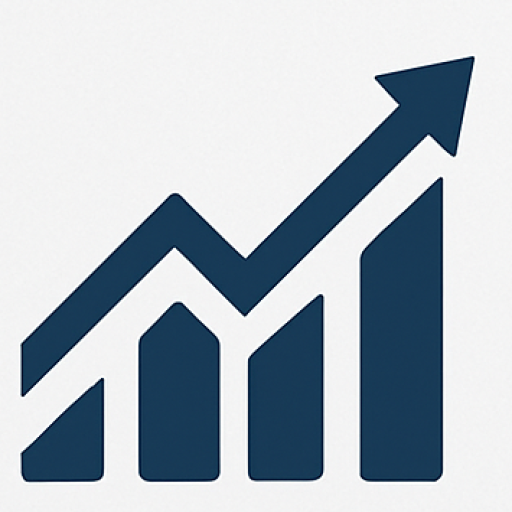Entrepreneurship offers freedom, flexibility, and the thrill of building something from the ground up, but with this freedom comes a heightened responsibility to manage your personal and business finances efficiently. Entrepreneurs face unique financial challenges compared to salaried employees; they must juggle irregular income streams, navigate complex tax obligations, plan for retirement without an employer’s help, and maintain a clear distinction between business and personal expenses. With so many financial responsibilities competing for your attention, the right personal finance apps can be transformative tools, empowering entrepreneurs to track income, monitor spending, save for goals, automate bill payments, and stay on top of investments.
These apps not only simplify money management but also provide valuable insights that support smarter financial decisions. However, with hundreds of personal finance apps available today, choosing the best ones for your entrepreneurial lifestyle requires careful consideration. You need solutions that are versatile enough to handle both business and personal needs, integrate with your banking and accounting systems, and offer the financial clarity required to support sustainable business growth and personal wealth building.
Mint

Mint, owned by Intuit, is one of the most popular personal finance apps on the market and for good reason. For entrepreneurs looking to maintain a clear view of their overall financial health, Mint offers a robust and user-friendly platform that aggregates all your financial accounts in one place. By connecting your personal and business bank accounts, credit cards, loans, and investment accounts, Mint provides a comprehensive snapshot of your net worth, cash flow, and spending habits. Entrepreneurs can categorize transactions, set budgets for both personal and business expenses, and track progress toward financial goals such as saving for taxes or funding a business emergency fund. Mint also sends timely bill reminders and alerts for unusual spending patterns, helping entrepreneurs avoid late payments and fraud. While Mint shines in personal finance management, it lacks advanced business features, making it best suited for entrepreneurs who want to monitor their personal financial life alongside their business earnings but still use separate accounting tools like QuickBooks for their business finances.
QuickBooks Self-Employed
For freelancers, sole proprietors, and independent contractors who want to streamline both personal and business finances in one app, QuickBooks Self-Employed is a powerful choice. Designed specifically for self-employed individuals, QuickBooks Self-Employed helps entrepreneurs track income and expenses, separate business from personal transactions, estimate quarterly tax payments, and generate detailed financial reports.
The app integrates directly with your bank accounts and automatically categorizes transactions, making tax time dramatically easier. Entrepreneurs can also use QuickBooks Self-Employed to track mileage for tax deductions and create professional invoices that can be sent directly to clients. While it’s primarily a business tool, its clear financial dashboards provide entrepreneurs with insight into how much they are truly earning after expenses and taxes, supporting better personal financial planning. If you already use QuickBooks Online for your business, you’ll find the ecosystem seamless. However, for entrepreneurs who need a comprehensive tax preparation tool with personal finance awareness, QuickBooks Self-Employed offers tremendous value.
YNAB (You Need a Budget)
For entrepreneurs who want complete control over their budgeting, both personally and for small business operations, YNAB (You Need a Budget) stands out as a best-in-class tool. Unlike many budgeting apps that merely track spending, YNAB follows a proactive budgeting approach called zero-based budgeting, where every dollar is given a job before it’s spent. This is especially helpful for entrepreneurs dealing with irregular income, as it forces you to plan your spending based on the money you have today rather than the money you hope to earn.
Entrepreneurs can create multiple budgets one for business expenses, one for personal spending, and even separate funds for taxes, emergency savings, and retirement contributions. YNAB’s real-time account syncing, detailed reporting, and financial goal tracking make it easy to adjust your spending as your income fluctuates throughout the year. While YNAB requires a learning curve and a paid subscription, the financial clarity and discipline it fosters are invaluable for entrepreneurs seeking control over their money.
Personal Capital (Now Empower)
Entrepreneurs who are serious about building long-term wealth should also pay attention to their investment portfolio and overall net worth, and this is where Personal Capital (recently rebranded as Empower) excels. This app offers an elegant financial dashboard that aggregates all your financial accounts, including bank accounts, credit cards, business checking, personal savings, retirement accounts, and brokerage portfolios.
Personal Capital shines in its investment tracking capabilities, providing detailed portfolio performance analysis, asset allocation breakdowns, and fee analyses to help you optimize your investment strategy. Entrepreneurs can also use Personal Capital to model retirement scenarios, track progress toward financial goals, and calculate their net worth in real time. While it is primarily an investment-focused tool, its personal finance tracking features make it a valuable addition to any entrepreneur’s financial toolkit, especially those who manage personal investments alongside business ventures.
Wave
For entrepreneurs seeking a free yet capable accounting and personal finance solution, Wave is a compelling option. Wave is designed primarily for small business accounting, offering invoicing, expense tracking, and basic financial reporting at no cost. However, it also allows entrepreneurs to monitor personal income and expenses by creating different accounts and categories.
While it lacks some of the personal budgeting tools of apps like Mint or YNAB, Wave’s ability to track cash flow, link bank accounts, and manage both business and personal finances in one platform makes it ideal for solopreneurs and freelancers just starting out. Wave also offers paid add-ons like payroll and payment processing, allowing it to grow alongside your business. While it doesn’t offer investment tracking or personal savings goal features, Wave is an excellent tool for entrepreneurs focused on keeping their finances organized without a monthly subscription fee.
PocketGuard
Entrepreneurs who prefer simplicity and automation in managing their personal finances may find PocketGuard to be the perfect fit. This app focuses on answering one key question: how much money do you have left to spend after covering bills, savings goals, and recurring expenses? PocketGuard connects to your financial accounts, automatically categorizes your spending, and shows you how much disposable income you have available.
This makes it easier for entrepreneurs to avoid lifestyle inflation during profitable months and maintain financial discipline when income fluctuates. While PocketGuard does not offer robust business expense tracking, its clean interface and focus on controlling discretionary spending make it a great complement to a more business-focused app like QuickBooks or Wave. For entrepreneurs who struggle with separating business profits from personal spending money, PocketGuard offers much-needed clarity.
Expensify
While Expensify is often marketed as an expense management tool for companies with traveling employees, it’s also incredibly useful for solo entrepreneurs and freelancers who want to track business and personal expenses seamlessly. Expensify allows you to scan and categorize receipts, track mileage, and manage reimbursement reports all from your smartphone.
Entrepreneurs who travel frequently or make many business-related purchases can easily separate personal expenses from business ones with Expensify’s intuitive interface. Its ability to integrate with accounting software like QuickBooks or Xero further simplifies tax preparation and financial reporting. Expensify’s personal finance features may not replace a full budgeting app, but as part of a comprehensive financial system, it fills a crucial gap in expense tracking and compliance.
Simplifi by Quicken
For entrepreneurs who want a more modern alternative to legacy Quicken software, Simplifi by Quicken offers a fresh, user-friendly approach to personal financial management. Simplifi provides a customizable dashboard where you can track spending, create budgets, manage savings goals, and monitor recurring subscriptions. Entrepreneurs can use Simplifi to track both personal and business accounts, categorize transactions, and get a clear view of their cash flow in real-time. Simplifi’s watchlists and spending plan features help you stay within your financial goals, providing alerts when you approach budget limits. Its seamless banking integrations and intuitive interface make it ideal for entrepreneurs who need a personal finance app that matches their busy, tech-savvy lifestyle.
Honeydue
If you’re an entrepreneur whose personal finances are intertwined with a spouse or partner, Honeydue is an excellent app for managing joint finances. Honeydue allows couples to share financial visibility across personal accounts, track household budgets, and set savings goals together. For entrepreneurs whose irregular income affects household budgeting, Honeydue helps create transparency around cash flow and financial planning. While it doesn’t track business finances, it complements your business accounting tools by ensuring that your personal and shared household finances remain organized and on track. Clear communication about money is essential in entrepreneurial households, and Honeydue’s collaborative platform fosters that transparency.

